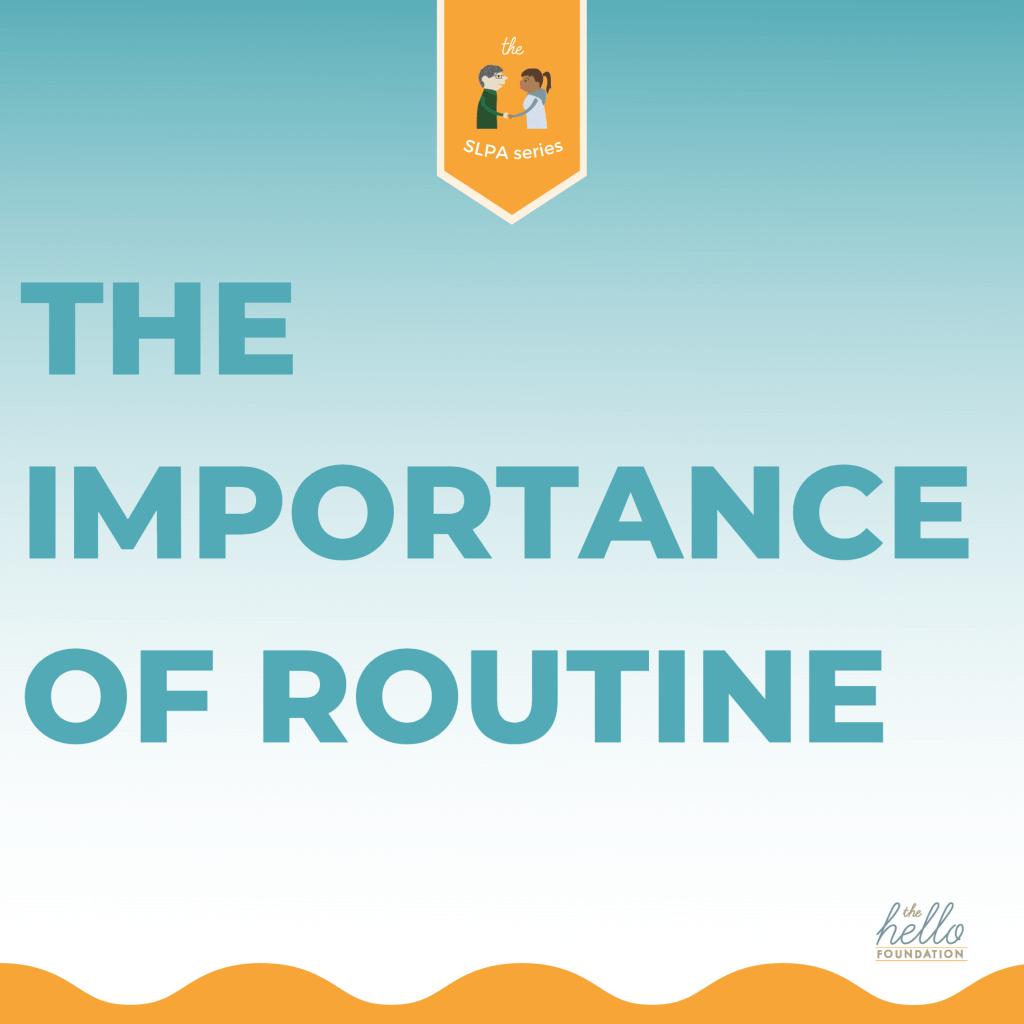Over a decade ago, we had a series of posts directed at SLPs and SLPAs, that focused on therapy fundamentals and clinical skills. Since we have our first cohort of THF SLPAs working in the schools this year, we thought it would be fun to take another look at these posts and reimagine their place in 2021.
I wrote about the importance of routine in successful speech therapy sessions. As schools attempt to build new, pandemic-responsive practices this fall, that post seemed like an excellent place to start our reboot.
Big idea: The importance of routine
Well-designed routines can support students emotionally, cognitively, and socially. Maslow’s hierarchy of needs informs our understanding of children’s needs. It follows that when children feel secure and know what to expect, we have fewer behavior problems and increased engagement around learning and practicing new skills.
This is the reasoning behind spending time every fall on school-wide community expectations and regular classroom activities. As students return to school buildings this fall, there is an increased focus on these routines and how they can benefit the re-entry process. Facing History gives examples of opening and closing routines that can help create a safe and supportive classroom environment where students can practice reflection, awareness, and emotional regulation.
Putting it into practice
Speech may be an important part of a student’s overall routine and an opportunity to reflect and build connections. As a clinician, you can help students by establishing patterns within your sessions. A simple routine can provide structure and predictability for you and your students, making sessions easier to plan, reducing behavior concerns, and building skills for students to use in the classroom and outside of school.
Consider how this simple, 3-step routine could fit into your sessions while supporting social/emotional learning and self-awareness:
Check-in – Ask students, “How are you feeling?” “What’s one thing that’s affected your mood today?” “What are you thankful for today?”
Set-up – Explain (maybe even write out) your objective for the day. Make explicit what you will we be working on and why is it important.
Wrap-up – Ask students, “is there one thing you can take away from today?” “How will you use/practice what you learned before I see you again?”
If you’re an SLPA, consider asking your supervising SLP to look at your therapy sessions using the lens of routines and getting feedback about what is and isn’t working. If you’re a supervising SLP, use your next few observations to focus on the session routines and talk with your SLPA about how they’re going and how you can work together to enhance them.
Although our sessions are often short, these are unique opportunities for students with communication challenges to connect in a small group and (sometimes!) with an adult who has been present across multiple school years. Time spent thinking about the routines you have for students, their role, and how you might improve them is a clinical skill that will always serve you (and your students) well.






